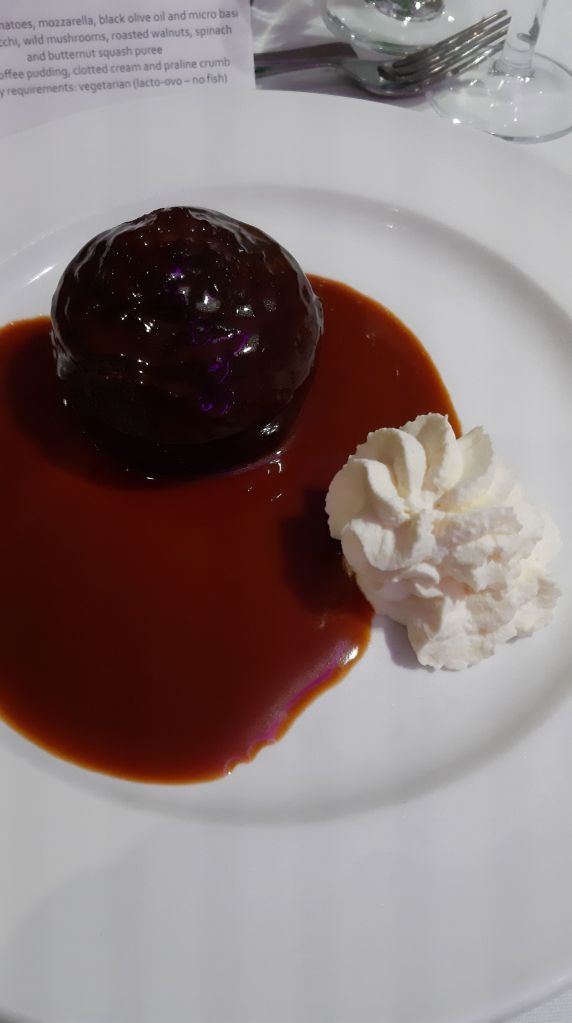The annual conference of the Society for Editors and Proofreaders (SfEP), which took place in Birmingham from September 14 to 16, was an absolute blast. Not only were the facilities at the Conference Aston hotel absolutely luxurious, but the delegates were a delight as well. As a first-time attendee, I was invited for drinks with the council before the start of the conference, and everyone made sure that I felt welcome and included. The conference organizers set up a speed networking event and assigned us random seats for the gala dinner on Sunday, ensuring that we talked to new people. They had also provided us with pronoun stickers, which I thought was a great inclusive move! More entertainment and bonding opportunities were provided by conference choir The Linnet’s performance on Saturday night and the after-dinner quiz that same day, during which I learned that I really, really suck at guessing songs based on their first few lines being read out.



On Sunday morning, I went on a 7 a.m. run with a group of edibuddies (thankfully, because of the time difference, this felt like 8 a.m. to me). I am part of a Facebook group for SfEP members who run called “Run On Editors,” and the conference presented us with the perfect opportunity to meet and run together in real life. This was definitely a very sporty start that required a huge breakfast afterward!

The conference opened on Sunday morning with a hilarious, very sweary lecture by Scottish author and editor Chris Brookmyre. Among many other things, we learned that the BBC tolerates a maximum of fifteen “fucks” in any radio episode. I don’t think I’ve ever laughed so hard during a conference lecture before (while academics can be funny, I haven’t found academics’ conferences to be nearly as hilarious as editors’ conferences)!
The first session I attended was organized by Paul Beverley, also known as “Word macro man.” Paul is an editor who started his career in IT and has used his programming skills to write Word macros that help editors analyze the documents they’re working on. Macros help editors see, for example, how many serial commas are used, how words have been hyphenated, and which word pairs are closed and which are left open. Macros are a great way of spotting and flagging inconsistencies in a manuscript. I was thrilled to be in a session where Paul guided us through installing his most-used macros on our laptops and taught us how to use them. He is such a generous and kind teacher, sharing his macros for free all these years!
Next, I attended a session on copyright pitfalls by Stephen Baker, rights and permissions manager at Pearson. He presented a lot of useful info about what copyright laws entail in the UK and the US, who holds the rights to a translated book, what can and cannot be copyrighted, what fair use/fair dealing is, and what “model releases” are (they provide consent from the persons appearing in a photo or video). The thing that baffled me and many others was the concept of “building release,” which means that in some cases, the owner of a location that appears in a publication has to give permission for the building to appear in the photo or video. Another thing that I had not thought about was “embedded rights:” if I would want to use a photo of a painting, for example, I would of course need to secure permission to reproduce the photo, but I would need to ensure that I have the rights to reproduce the painting as well.
The next session was “Proofreading2020” by Melanie Thompson. She gave us a broad overview of the history of proofreading, which involved some great examples found in old manuscripts, and told us about the level of training and skills involved in this work. This is the session where I learned that “lowercase” letters were literally kept in the lower case in hand press’s type box. Who knew? I certainly didn’t.
Finally, I attended the Lightning Talks, a series of short talks where I learned many things, such as which podcasts for editors are out there and what Eleanor Abraham learned about editing from her cats (this was absolutely hilariously great; see pictures below).
I wrapped up the first day of the conference with “Social Media Social,” a gathering of editors active on social media organized by Kia Thomas. I exchanged business cards and Twitter handles with people and met some edibuddies that I had only known virtually before. It was lovely!
After some much-needed rest, I dressed up for the drinks reception and gala dinner. We had wonderful food, accompanied by conference choir The Linnets and a hilarious lecture by linguist Rob Drummond. He reminded us that the English language is always evolving and that there is no such thing as standard English. We also raised a glass to some wonderful news: The SfEP has been granted chartership status and will become the Chartered Institute for Editing and Proofreading! The transition will be finalized in the next few months.
I was absolutely exhausted by the end of the evening and slept soundly that night. The second day of the conference started with a fascinating presentation by Cathy Waibel and Edmund Frimston about editing for the European Parliament. They are part of the Parliament’s “Clear Language and Editing Unit,” which is part of the Directorate General of Translation. They edit texts like parliamentary questions and reports by MEPs before they are translated or published.
The EU has 24 official languages, which leads to a staggering 522 possible language combinations that the translation unit has to provide for. The editing unit works in English and French only, but has a broad knowledge of a range of other languages, which helps them understand common errors that native speakers of for example German, Italian, and Polish make. We had a lot of fun looking at examples of texts written in English and trying to figure out the native language of the writer. The presenters also helpfully showed us how they fixed common errors and provided a list of “false friends” in major languages. I would definitely be interested in any shared resources that list such examples and their solutions, because sometimes I feel like I am reinventing the wheel when working with texts written by non-native speakers. This presentation also made me realize that I would like to learn more about translation and maybe take some courses in the future.
Next up was a session by Matthew Batchelor on “The Six Habits of Highly Effective Editors.” I learned again that sleep is very important! He also made some interesting comparisons between editors and several other professions like spies, detectives (I relate to that one strongly!) and sound engineers. He challenged us to think about our vision, identity, values and belief, capabilities, behavior, and environment.
In the afternoon, I attended a great session by Laura Poole, where she shared some of her biggest failures as an editor (including a referral gone wrong) and told us how she remedied them: vet all partners, protect your reputation, and go the extra mile. After that, she invited us to share our own mistakes. This was an absolutely wonderful session, because it was a safe space in which we could open up about things that we had failed at as editors and receive feedback on our mistakes and the way we handled them. I told them about the time I underestimated how long a job would take me, and I spent nearly three times as many hours on it as I had thought I would.
The closing plenary was a lovely lecture by SfEP Honorary Member David Crystal, who told us about the process of updating his Cambridge Encyclopedia of the English Language. The rise of the Internet and related changes in language use ensured a lengthy addition to the encyclopedia. He told us about how the meaning of periods/full stops has changed for many people who use WhatsApp (sentences are usually not followed by a period, unless the writer wants to emphasize something) and how ellipses have come to denote something ominous (“Jack was there…”). It was a lovely lecture and it actually made me buy his book on the way back to the continent!
After the raffle (in which I sadly did not win anything) and wrapping up, I had a drink with edibuddies/Run On Editors–members Luke Finley and Cathy Tingle before boarding my train back home. I loved the conference, its inclusivity, its fun, its luxurious food and accommodation, its learning, and its people. I will definitely attend #SfEP2020 in Milton Keynes next year!



















Pingback: SfEP conference 2019: what they said - SfEP blog